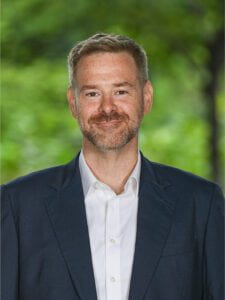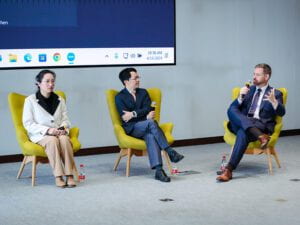In the wake of the COVID-19 pandemic, vaccine hesitancy poses significant challenges to public health efforts worldwide, continuing to put people at risk of contracting preventable diseases like polio, HPV, measles, and influenza. At this critical juncture, based on lessons learned during the COVID-19 pandemic, the American Public Health Association (APHA) has endorsed a new policy. Acknowledging the vital role faith leaders play in influencing their communities, this policy, developed and coauthored by eight experts including Dr. Inon Schenker, an NYU Tel Aviv lecturer, calls for wider engagement of public health leaders with faith-based organizations to improve public health and vaccine equity. The authors studied instances of collaboration between public health and religious leaders and found positive results, particularly in underserved, marginalized, and hard-to-reach populations.
Dr. Schenker, a public health specialist with over 20 years of experience in research and practice in Africa, the Middle East, and Latin America, explains, “The policy reflects a fresh perspective on connecting faith and public health. Faith leadership—priests, rabbis, imams—are highly respected in their respective communities. The trust and influencing power over large cadres of people they wield can make a difference in pandemic preparedness and response.” Dr. Schenker’s diverse background in public health, with experience working with the World Health Organization, civil society organizations, and the private sector, underscores the importance of combining practical experience with academic insights—a philosophy deeply embedded in the NYU ethos. This is also the third time he is leading APHA teams to develop endorsed global health policies.

Jewish, Muslim, and Christian participants in a panel on interfaith collaboration with public health experts held in Karlsruhe, Germany, underscore the important roles religious leaders have in promoting vaccination and supporting community health.
Photo Credit: Julia M/JIVI
Turning Recommendations into Results
Dr. Schenker emphasizes the importance of spreading awareness about the new policy and translating its recommendations into action items. He urges prompt implementation to address pressing health challenges, better prepare for future pandemics, and improve overall health equity. Some of the policy’s recommendations include engaging in ongoing dialogue with religious organizations to develop strategies for the local and global levels; identifying areas where public health and religious leaders can collaborate to protect life and prevent disease; investing in faith-based vaccination initiatives and culturally appropriate messaging; launching religious organization–led programs to reach those who are vaccine hesitant; and training faith leaders to work with public health leaders and vice versa.
Drawing on real-life examples, Dr. Schenker shares past success stories, like a recent initiative in Jerusalem where religious leaders came together to endorse collaboration between faith communities and public health agencies. He also participates in ongoing research efforts in Israel, such as using mosques as hubs for community centers for older adults and for health-promotion interventions.
Inspiring Better Outcomes
Overall, the new policy underscores the potential for pragmatic collaboration between faith-based organizations and public health authorities to tackle vaccine hesitancy, bolster emergency preparedness, and respond to urban health issues. Through mutual respect and a shared vision, these partnerships have the power to drive meaningful change and promote better health outcomes for all.

The President of Israel convened a meeting of faith leaders in Jerusalem to cosign a declaration calling for faith communities worldwide to collaborate with the medical profession on public health issues. Pictured above: The Latin Patriarch, Archbishop Pierbattista Pizzaballa; The Greek Orthodox Patriarch of Jerusalem, Theophilos III; The Anglican Archbishop, Dr. Hossam Na’um; The President of the Muslim Shari’a Court of Appeals, Sheikh Abed Elhakim Samara; The Druze Community Leader, Sheikh Mouwafaq Tarrif; The Secretary General of the Baha’i Movement in Israel, Dr. David Rutstein; The Rishon LeZion, Chief (Sephardi) Rabbi of Israel, Rabbi Yitzchak Yosef; The Chief (Ashkenazi) Rabbi of Israel, President of the Supreme Rabbinical Court, Rabbi David Lau
Photo Credit: Koby Gideon/GPO
Written by Kelsey Rexroat


